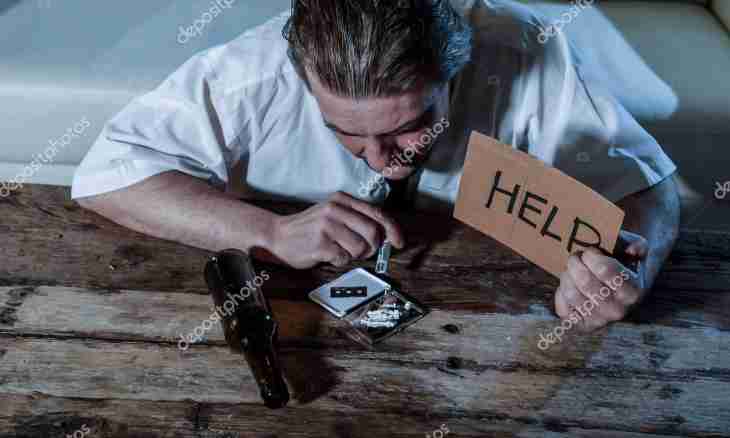Alcohol, drugs, psychotropic substances are noxious to health the teenager. If you suspect that your child uses something, you need to act.
Alcohol and drugs: what is safe for teenagers
There is no safe level of alcohol intake for children 18 years because their brain and a body still develop are younger, and the use of drugs, such as cannabis, ecstasy and cocaine – is absolutely inadmissible! But if your child regularly uses or abuses the forbidden substances or feels that he cannot have a good time without it, it is very serious problem.
The warning signs
It is not always easy to define whether is at the young man of a problem. Such signs as, differences of mood, fit of anger, change in clothes, friends and interests, can indicate existence of problems, but they are also a normal part of teenage age. There are other warning signs which can mean that you need to act.
School and public life
- became worse to study or pass school
- uses the confidential or "coded" language at communication with friends
- became more reserved in the affairs or hides where it goes
- isolates itself more, than usually
- spends much time with new friends
- wears various clothes or jewelry, especially those which have symbols or attributes of drugs.
Behavior
- uncharacteristic changes in mood
- changes with a dream (insomnia, high activity or problems with awakening)
- began to use aromas or air fresheners to hide a smell of smoke or other substances.
Health and hygiene
- appearance of pimples, which "angrier", than usually
- began to use mouthwash or mints.
Money
- asks to lend more money, than usually
- sells property or steals money or other objects from your house
- has more money, than usually, for no apparent reason.
Unusual objects
If you find in the child any of the listed below objects, it is better to talk about them to your child, at the same time trying to keep openness:
- objects from the addict's arsenal, such as needles, tubes, rolled paper or small plastic bags on a lightning
- bottles with eye drops - them can be used for masking of bloodshot eyes or expanded pupils
We speak with the child
If you noticed any of the listed above signs or found things which disturb you, begin with a conversation with the child. It will not be easy, but for mental and physical health of your child important that you began a conversation. The conversation and active hearing are first steps to recognition that a problem serious, and something should be done with it. There are several councils which can help you to begin.
Plan in advance
Before talking to the child, learn more information connected with a problem. Study will well prepare you for the help to your child and can help you to remain the quietest.
You will choose the correct time
It is important to keep openness, to quietly listen and hear history of your child. It can be difficult, and to you, perhaps, it is necessary to begin several times before you find the moment suitable for both of you. If the child in a condition of drug or alcoholic intoxication, or you become angry and are excited, communication will hardly turn out. Try to choose time when you are ready and your child will be sober.
Keep a positive spirit
If you are quiet and positive, your child has more chances to obtain adequate assessment and information. Charges, lecturing or criticism more likely will force your child to be closed and can even lead to a dispute.
Concentrate attention on behavior
If you are concerned by behavior of your child, try to focus on behavior, but not on alcohol and drugs. For example, your child can aggressively behave, shout or lie. You can tell something it seems: ""I noticed that you began to behave aggressively at home recently. May we talk about it?"". Try to keep calm and carefully be at loss for words.
After you talked to the child and you had an idea of gravity of a problem, you can learn about concrete medicines which are used by your child. Pay attention that newsletters on drugs usually give scenarios of the worst case therefore try not to panic and not to do the assumptions, you do not learn more yet. You can offer the help, but you cannot "cure" the child . Your child can be not ready to recognize the problems, and, perhaps, he does not want your help. If your child is not ready or is not interested, you cannot force.
What can be made at once?
You will have many questions. Answers will be unique for your family and will be received as a result of clarification of what for you and your family is necessary, but you can already begin to act:
- to remove alcohol from your house
- to correct and to carefully trace pocket deneg of your child.
Who can help?
There is a set of resources and options of support for you, your child and your family. You can begin with a conversation with the attending physician, the school consultant, the teacher or other school personnel. The family members, friends and other adults close to your child can help you and your child.

